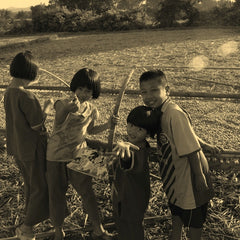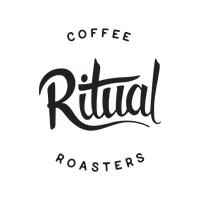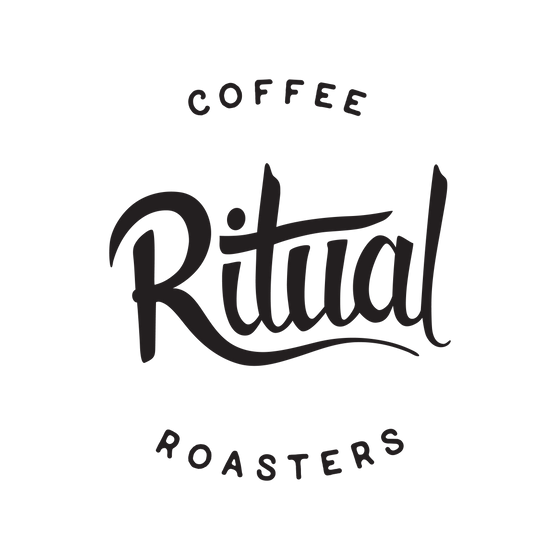Is your coffee Fair Trade?
By Stuart Grant

Why not? Good question, especially given that we promote our coffee as "ethical". Firstly I want to state that we don't want to denigrate the work of FT; nor its proponents. We simply feel that FT isn't enough. I know little of the efficacy of the movement outside coffee, and we stand alongside FT advocates in desiring a better deal for coffee producers. I'll give two main reasons why we as a roasting company think we can do better than FT.
1. Fair Trade doesn't promote quality.
Coffee is bought and sold in such massive volumes that it is traded on the commodities market - alongside oil, wheat and gold etc. This establishes a standard price for coffee, which is known as the "C" price. The C market rises and falls with global supply and demand for coffee. When supply is high, or demand low, the C market falls. For example, it fell heavily in 2000, resulting in incredible hardship for millions of coffee producers around the world, forcing many out of the industry altogether.
The way that FT operates is to set a minimum price - for when the C price is low - as well as adding a premium to the C price for when it is above the FT minimum. Producers and cooperatives must purchase certification as FT (and/or organic) as a way of increasing or protecting their income. Our problem with the FT system is that it does nothing to encourage good quality coffee; it increases the value of a coffee (very slightly) without reference to how it tastes. We firmly believe that by improving coffee quality producers create a more sustainable income for themselves. Quality sells; if their usual buyer doesn't come through for them that year, at least there will be demand for their coffee from elsewhere. FT encourages reliance on certification, effectively putting a ceiling on income as well as a floor.
2. The structure of Fair Trade can undermine its aims.
There is a disconnect between the C market and the daily lives of most coffee producers. It is almost cruel that the choices (or whims) of commodity traders in New York can jeopardise the livelihoods of so many of the poorest people on earth. Nevertheless, the majority of coffee is bought and sold in reference to this C price. Fair Trade tries to deliver a higher price within an inherently unfair system. This leaves it open to many of the flaws of that system. A few examples follow:- FT coffee generates its own supply and demand. When demand for FT coffee is low, FT-certified cooperatives might sell as little as 20% of their coffee at the increased price, and have no choice but to accept the regular price for the majority of their coffee, despite having paid for certification (Berndt 2007:16, Valkila 2009:2).
- The premium paid for FT coffee is collected by cooperatives to be paid back to farmers. However, the administrative costs of FT certification are deducted from this total and in some cases the farmers receive none of it (Berndt 2007:27).
- Only cooperatives can register as FT-sellers. Individual farmers must be part of such a cooperative to be able to sell their coffee as FT. This excludes a vulnerable section of producers from FT.
- A 10-year study by Beuchelt & Zeller (University of Hohenheim) concluded that amongst a group of Nicaraguan small-holders, those with FT and/or organic certification had on average become poorer than their neighbours who lacked certification, primarily due to the cost of certification and decreased yields in the case of organic (Solomon 2011).
So what do we do?
Hopefully the above has illustrated why we choose not to support FT. Hopefully it has also shown how complex this issue is! Unfortunately, the problem of systemic poverty amongst coffee producers will be a long-term challenge. We are committed to working with suppliers who share our concern for the welfare of the people we buy coffee from. This means making the supply chain shorter, so that we can be closer to the producer - metaphorically, at least. As I described above, emphasising quality is the key for us. Our suppliers (and in some cases we ourselves) can work with producers to help improve quality. This of course means that we will pay more for the coffee in subsequent years. I used to use the term "direct trade" (quite liberally) for our style of coffee sourcing, but out of respect for a bunch of other coffee companies who use that term far more impressively, I now prefer not to. You might call some of ours "relationship coffee"; you could call it being transparent; you could call it "ethical" (like our coffee bags do). At this point I prefer not to name it because it's something that will keep changing as we learn more about how to engage more closely with producers and as the specialty coffee industry finds better ways of addressing the problem of poverty.References:
Feel free to look through some of the following references to learn more about this complex issue. I want to note here that some of these articles are well-written and academically sound, while others are opinions pieces - some poorly argued - which are of more benefit as a discussion starter than an informative text.- Berndt, Colleen, Mercatus Policy Series, June 2007, 'Is Fair Trade in coffee production fair and useful? Evidence from Costa Rica and Guatemala and implications for policy'.
- Chambers, Andrew, guardian.co.uk, December 2009; 'Not so fair trade'.
- Clemens, Andrew, foreignaffairs.com, September 2007, 'Smart Samaritans'.
- Collinson, Patrick, guardian.co.uk, November 2010; 'Fairtrade isn't failing its farmers'.
- The Fairtrade Foundation (UK) - Frequently Asked Questions.
- New Agriculturalist, May 2006, 'How fair is Fairtrade?'.
- Poulter, Sean, The Daily Mail Online, March 2010, 'Unfair trade: Ethical food ‘is not lifting Third World farmers out of poverty’'.
- Rohac, Dalibor, Institute of Economic Affairs, March 2012, 'Let's get the facts straight on 'fairtrade''.
- Solomon, Lawrence, Financial Post, May 2011, 'Fair-trade coffee producers often end up poorer'.
- tradingeconomics.com, 'Coffee Price, 1972 - 2012'.
- Valkila, Joni, Ecological Economics, April 2009, 'Fair Trade organic coffee production in Nicaragua — Sustainable development or a poverty trap?'.

